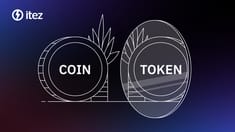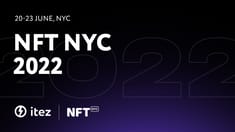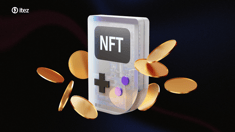In brief, the proceedings between the SEC and Ripple Labs received a serious continuation yesterday. In a recent court order, the judge declared that the XRP token can be considered both an unlawfully sold investment contract and a lawful product, depending on the buyer. This ruling has created uncertainty in the cryptocurrency market and opened up possibilities for further legal disputes and discussions. However, despite this development, XRP’s value skyrockets!
The context
The U.S. Securities and Exchange Commission (SEC) has been embroiled in a legal battle with Ripple Labs since 2020. The SEC argued that Ripple's XRP token is an unregistered security and should be subject to the same regulations as traditional financial securities like stocks and bonds. The regulator believes that the sale of XRP, which has generated billions of dollars for Ripple Labs, is unlawful.
The term “Security” usually refers to a type of tradable financial asset, such as shares, bonds, or potentially even a cryptocurrency. However, there's been an ongoing debate about whether cryptocurrencies should be classified as securities, leading to the SEC's legal case against Ripple.
What happened
On Thursday, Judge Analisa Torres of the Southern District of New York issued an ambiguous decision. The judge categorized Ripple's sales of XRP into three groups:
💰 Institutional sales to large investors like hedge funds;
👥 Programmatic sales to retail buyers on digital asset exchanges;
🧑💻 Distributions to employees or other service providers.
Torres ruled that when Ripple sells XRP to institutional investors, it is like selling an unregistered security and therefore unlawful. However, when XRP is sold on cryptocurrency exchanges to retail investors or distributed to employees, it is not classified as a security. The judge’s reasoning is that buyers in these cases do not necessarily expect to profit from the efforts of Ripple Labs, which is a critical criterion in defining a security according to the so-called "Howey Test".
The Howey Test is a legal principle used to determine whether a transaction qualifies as an "investment contract" and thus should be considered a security. It examines whether there is an investment of money in a common enterprise with an expectation of profit primarily from the efforts of others.
Yesterday's meeting did not put an end to this matter. The SEC may appeal this decision, and Ripple Labs is likely to face trial for selling unregistered securities to institutional investors. The guilt of Brad Garlinghouse (CEO of Ripple Labs) and Chris Larsen (Ripple co-founder) in institutional sales will be decided by a jury. The dates for further hearings are still unknown.
Notably, the court clarified that the XRP token itself does not inherently constitute an investment contract, a point that House Majority Whip Tom Emmer seized upon. He noted that the decision is a "monumental development", highlighting the need for this interpretation to be codified into law.
Brad Garlinghouse views the ruling as a partial victory.
Market reaction
Following the announcement, the XRP's price surged dramatically, experiencing a substantial increase of over 60% in just 24 hours. As of this writing, XRP is trading at around $0.78. This surge catapulted XRP to the fourth spot in terms of market capitalization in the crypto space, after USDT, ETH, and BTC.
The "ripple effect" of this development was felt across the market. BTC reached a new high for the year at $31,804, while ETH is vying to surpass the $2,000 mark. The total market capitalization of all cryptocurrencies is currently hovering around $1.25 trillion.
After seeing the green light for the XRP token, several exchanges announced their plans to list the coin. These exchanges include Coinbase, Kraken, Gemini, Crypto.com, Binance.US and Bitstamp.
Also read: Crypto: security or commodity?








